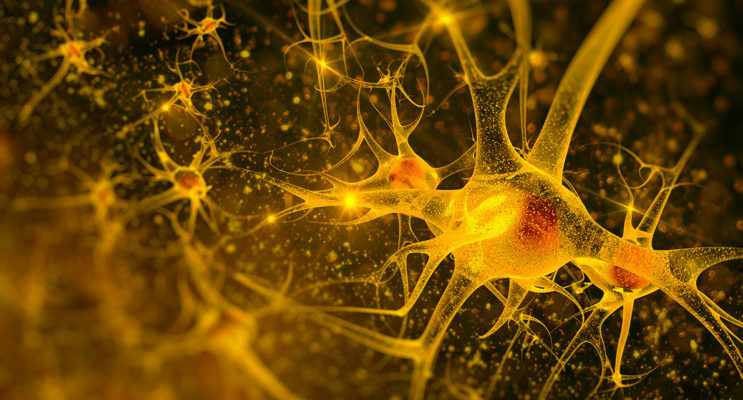NEUROENDOCRINOLOGY
Neuroendocrinology is a relatively new science, developed in the mid-20th century
Neuroendocrinology is a relatively new science, developed in the mid-20th century, as a subsection of Endocrinology and studies the brain’s relationships with hormones.
TopThe brain produces neuro-hormones and therefore functions as an endocrine organ. At the same time, hormones in the blood produced by the endocrine glands, affect the brain development, the function of the nerve cells, and the behavior of the person.
TopThese two functions-regulation of the hormonal secretion by the nervous system (brain) and modification of neuronal activity by the endocrine system – constitute the basic mechanism, through which our body controls all its functions in order to achieve homeostasis; the balance and the harmony of all body’s functions and essentially define the field of neuroendocrinology science.
TopNeuroendocrine cells are the cells that produce hormones after nervous stimulation or stimulation by neurohormones.
Top
The cells of the neuroendocrine system are located in various parts of the human body, either as a structural cell of the neuroendocrine organs, such as the pituitary gland, and the adrenal medulla, or as collections of neuroendocrine cells, such as the pancreatic islets of the endocrine pancreas (Langerhans islets), but also as diffusely distributed cells, in various tissues, such as the thyroid gland and gastrointestinal tract.
TopAs the neuroendocrine cells are found in various parts of the human body, the neuroendocrine system controls a wide range of functions. Appetite, thirst, reproduction, lactation, the stress response, growth and development, metabolism, blood pressure, sugar levels, digestion, the homeostasis of fluids and nutrients, maintenance of body weight and body temperature are some of the functions that the neuroendocrine system controls.
TopWe provide the highest standard of patient care, through our specialized knowledge on the treatment of all the diseases of the Neuroendocrine system. Our Clinic is staffed by endocrinologist, surgeons, interventional radiologists, oncologists, genetician and specialized nursing staff, who undertake the prevention, diagnosis, treatment and care of patients, as a multidisciplinary team based on international standards.
In collaboration with the hormonal laboratory and the nuclear medicine department, we perform specialized hormonal and dynamic tests, while the radiology department provides us with experienced neuro-radiologists and the most modern and up-graded technology, such as MIBG, PET, CT, MRI for the evidence-based diagnosis and follow-up of rare and complex cases. In addition, for the genetic (familial) endocrine neoplasia syndromes, we offer genetic (mutational) testing to both the patient and the whole family.
For the treatments we provide to our patients, we use leading technology, such as robotic surgeries, radioisotopic molecular targeting, arterial embolism, stereotactic radiology, chemotherapy, modern medication always following the Greek, European and International guidelines.
Top